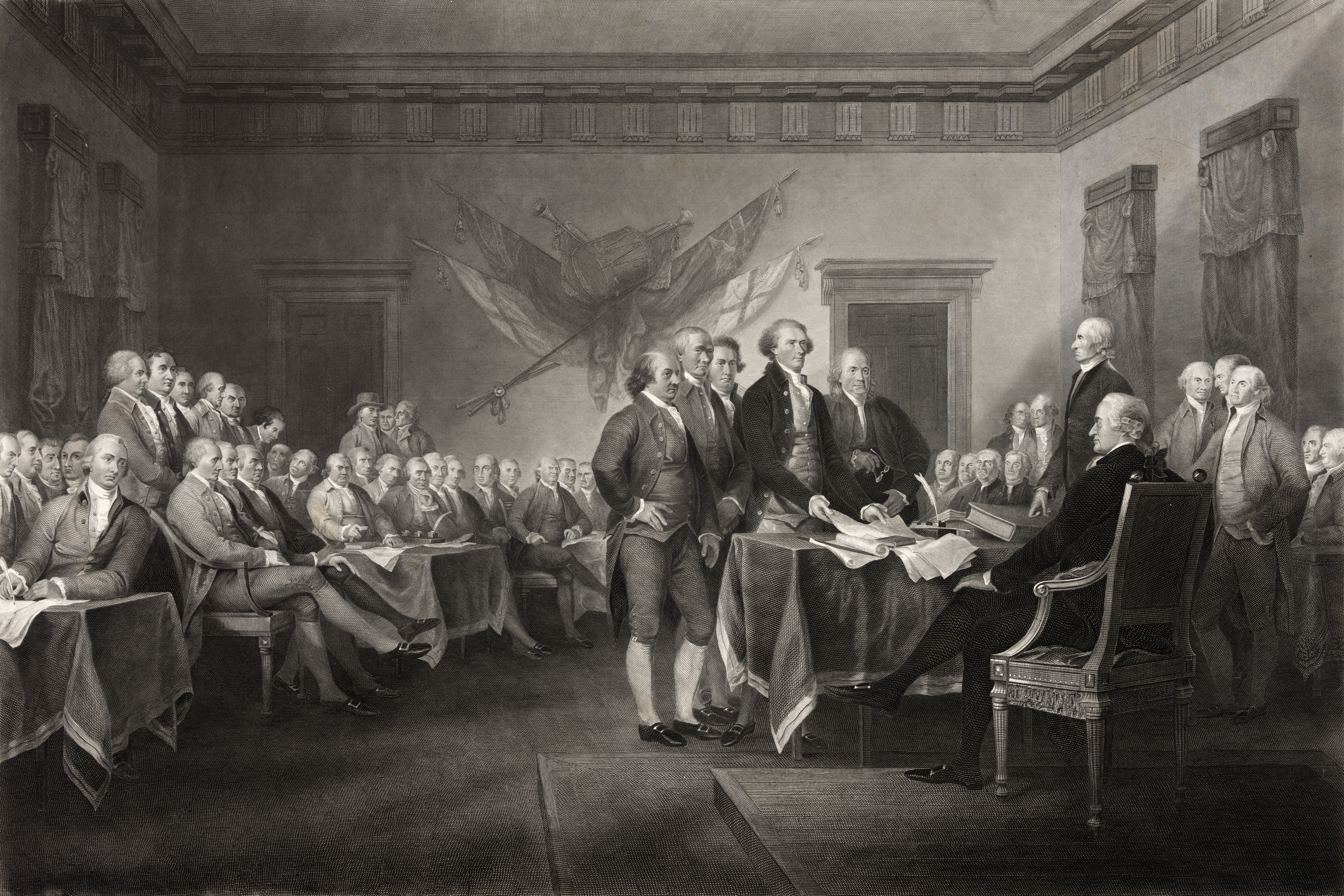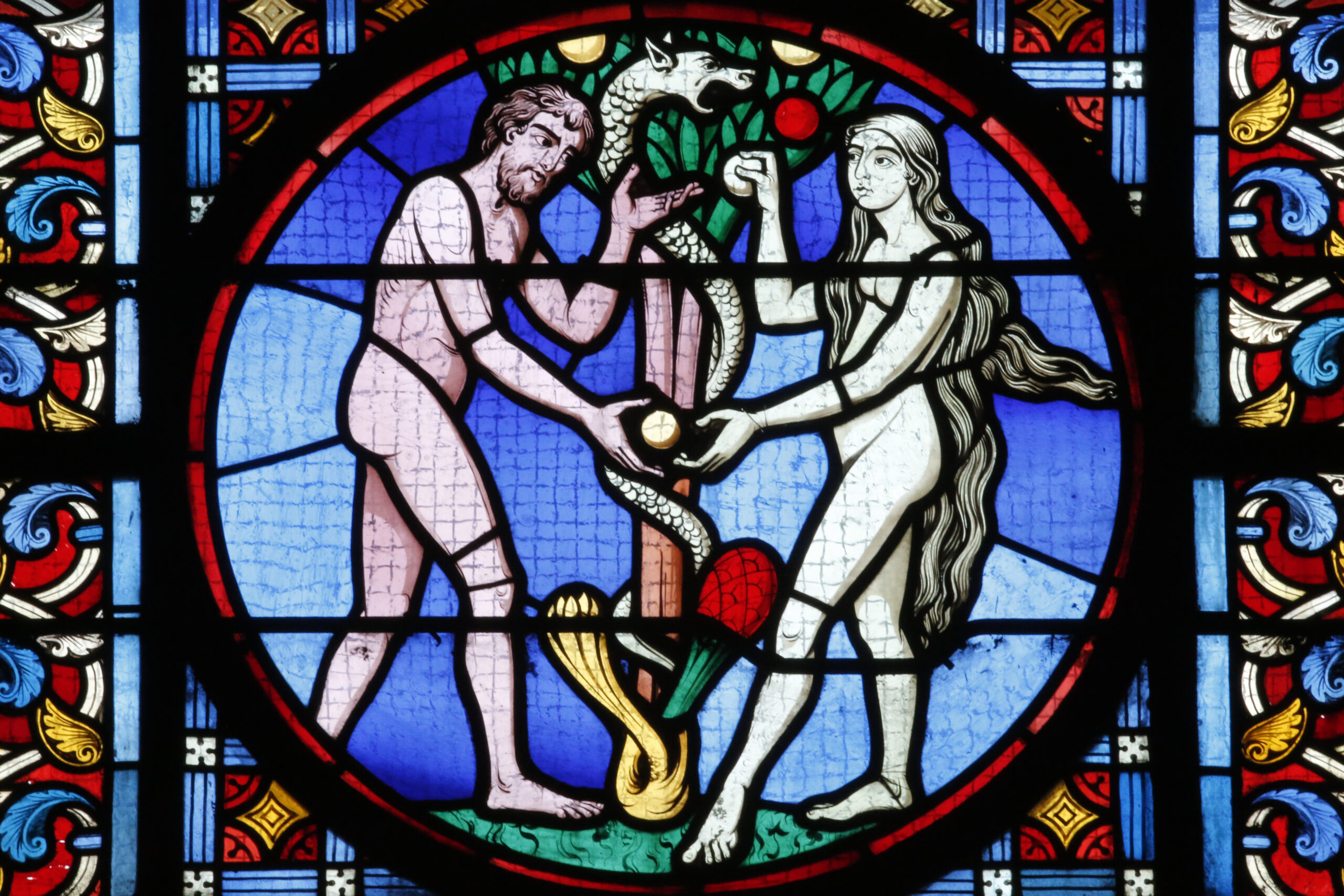Nationalism in the abstract can’t defend our unique constitutional traditions.
On Nations and Nationhood

At the intersection of politics and principle.
Daniel J. Mahoney responds to Charles Kesler’s essay, “National Conservatism vs. American Conservatism,” from the Winter 2023/4 issue of the Claremont Review of Books.
Once in a great while an essay appears that gets to the heart of the matter. It’s rarer and rarer these days to see this kind of article, the kind that raises questions in such a discerning and suggestive manner that thoughtful people are obliged to pay attention. One thinks of Daniel Patrick Moynihan’s 1975 essay “The United States in Opposition” or Jeanne J. Kirkpatrick’s 1979 essay “Dictatorships and Double Standards,” the sort of pieces that Commentary, in a different iteration, used to specialize in. Charles Kesler’s essay “National Conservatism vs. American Conservatism” from the latest issue of the Claremont Review of Books makes precisely such a contribution to thoughtful public debate and discussion. Its elegant treatment of the challenge posed by the emerging movement known as National Conservatism is at once thorough, judicious, well-informed, and equitable (in the true meaning of that venerable term).
While rightly disowning the more impatient and counterproductive versions of the self-proclaimed New Right (whether “integralist” or pseudo-Nietzschean) that dispute the goodness and greatness of the American idea itself, he shows sympathy for a new generation of young American conservatives who have been subjected to a non-stop and undeniably suffocating atmosphere of coercive self-loathing.
At the same time, Kesler vindicates the honor of older currents of conservatism, those associated with the names of William F. Buckley, Jr. and Ronald Reagan, arguing against their detractors that they were hardly tepid, spiritless, or ineffective. Kesler reminds us of the “populist” impulses that inspired William F. Buckley in his prime (think of his proto-Trumpian run for mayor in New York City in 1965), and of valiant conservative struggles against statism, internal subversion, Communist totalitarianism, as well as the crude antinomianism of the New Left and the counterculture it elevated. Some of these battles were not won. But none were definitively lost either. As Kesler argues, following Buckley, old and venerable ideas need to be renewed and reinvigorated, expressed in idioms that speak to new circumstances and new generations. But they should not be hastily or ungratefully jettisoned. Let’s let the cultural and political Left have a monopoly on the heartless repudiation of the past.
I share Kesler’s respect for the honorable motives that have led so many thoughtful conservatives (among whom I count old and trusted friends) to associate themselves with the National Conservative movement and to endorse the “Statement of Principles” put forward by Yoram Hazony’s Edmund Burke Foundation. The very idea of what Roger Scruton called “humane national loyalty” is today under “insidious pressure” as Kesler puts it: “from above—from international and transnational organizations, laws, and ideological-cum-religious movements, and from below—from racial, ethnic, sexual, and tribal-cultural factions asserting claims against national citizenship.” Kesler rightly adds that “the big thing that the Natcons get right is the present duty to come to the defense of decent nation-states against their enemies and critics.” So Yoram Hazony and the National Conservatives deserve vigorous commendation for daring to defend the honor of the nation-state and humane national loyalty against its cultured despisers.
All the same, I agree with Charles that it is a mistake to excessively “internationalize” the idea of the nation. America is much more than the emanation of an amorphous Anglo-American liberty. The United States is indeed a nation and a regime that has prided itself on being founded. Hazony, the theorist par excellence of National Conservatism, is by no means wrong to be suspicious of a certain over-developed rationalism or to point out the potential for tyranny inherent in the spirit of abstraction. But the problem is not an appeal to universal principles per se: it is the invocation of universal principles devoid of humane prudence, and without respect for sound tradition as a source of wisdom. Self-satisfied gestures toward “ideals” such as “human rights” quickly become arbitrary and distorted when detached from concrete expressions of civilized liberty in self-governing political communities. America is unthinkable without “the principles of ’76,” which must be accompanied by carefully calibrated prudential judgment and distrust of utopian vagaries.
Tocqueville is helpful here. At the beginning of volume II of Democracy in America, Tocqueville affirms that general ideas are indispensable to underpin, for example, opposition to the abomination that is chattel slavery. English liberty, as admirable at it was, tended to be too particular, too wary of a principled or universalist articulation of liberty and human dignity. The French Revolutionaries, at the opposite extreme, were drunk with “general ideas” in the form of reckless ideology—“atheism by establishment” as Edmund Burke called it. The more irresponsible (and influential) among them thought they could begin the world completely anew with a revolutionary “Year Zero,” a tabula rasa applied to the whole of human life.
Americans, in contrast, built on the considerable achievements of English liberty, while putting forth a proposition for all mankind. But those universal principles found expression in the concrete exercise of political liberty within a self-governing nation-state, as we would say today. The best American thinkers and statesmen have richly illumined the theory and practice of the regime of constitutional liberty. But they have largely presupposed the reality of the national form. There is thus ample room for political science to theorize, and reinforce, the essential link between the national form of government and the regime of modern liberty. But all of Kesler’s caveats about the distinctive features of American nationhood (and conservatism) apply to such theorizing, present and future.
Pathological Nationalism?
The widely articulated distinction between welcome patriotism and unhealthy (because extreme and overwrought) nationalism has some merit. But democratic self-government crucially must be enacted within the context of a nation and is in truth unthinkable without that context. As Pierre Manent has suggested, critics of humane national loyalty want to talk about nationalism, which they arbitrarily define as nothing but a pathology. But Manent argued in his book A World Beyond Politics?: A Defense of the Nation-State that the nation and democracy can be both allies and enemies. It is thus imperative to make distinctions, a point Kesler also stresses.
At the same time, it is striking that the two greatest contemporary theorists of the nation and political forms, Roger Scruton and Pierre Manent—an Englishman and a Frenchman—both adamantly opposed the “denationalization” and “depoliticization” of democracy, and yet scrupulously avoided the term nationalism. For better or worse, they feared that term had become unrecoverably associated with pathology, as least as it is received in the contemporary world. It is better to have nations than not, but being a nation does not make something good—so how is one to defend “the idea of the nation” in a vacuum, without reference to any particular national affirmation? This is a conundrum well explored in Kesler’s essay. As he suggests, distinctions between good and bad forms of nationalism are unavoidable.
A salient case is Russia, an example which Kesler treats quite judiciously in his article. Too many people in the West are satisfied with endlessly recycled clichés regarding that ancient nation and its accompanying political culture. It is too facile to see in Russia a distant “Asiatic despotism” with a voracious imperialist soul. The Soviet Union fell in no small part because Russians came to see an ideocratic Soviet empire as a cruel and tyrannical, not to say unnatural, imposition on precisely the Russian people. Solzhenitsyn was the most visible and thoughtful public figure to call for Russians to reject empire and to turn inward in the spirit of self-limitation. There are indeed nasty Russian nationalists—from Vladimir Zhirinovsky in the 1990s, who wanted Russian boots in Alaska and dipping in the Indian Ocean (Solzhenitsyn called him an “evil caricature of a Russian patriot”) to the so-called National Bolsheviks and the Red-Brown coalition.
Does Putin want to restore a Soviet or even a Russian empire? I think not. He is motivated much more by the fate of 25-30 million Russians in the “near abroad” and the seemingly endless expansion of NATO eastward. That is not to justify his decision to launch a war with Ukraine, even if it makes it more intelligible. But is our new “Woke imperium” truly coextensive with the defense of Western civilization (a notion which is at best quaint to our regnant elites)? These are of course questions and issues to be more fully addressed on another occasion. But they cannot be answered by treating Russia’s complex internal politics and tortured history as one simplistic entity, whether to be condemned outright (as our bien pensants do) or to be defended on grounds of national sovereignty (as an immoderate nationalism might).
Charles Kesler’s thoughtful, measured, and generous exploration of the relationship between American conservatism and what is now called National Conservatism will remain the starting point for all future reflection on this question. Not least among its virtues, it provides a model for prudent civic reflection at the service of the common good.
The American Mind presents a range of perspectives. Views are writers’ own and do not necessarily represent those of The Claremont Institute.
The American Mind is a publication of the Claremont Institute, a non-profit 501(c)(3) organization, dedicated to restoring the principles of the American Founding to their rightful, preeminent authority in our national life. Interested in supporting our work? Gifts to the Claremont Institute are tax-deductible.
There’s no escaping the tensions inherent in National Conservatism, and in political life.
Not all nationalisms are created equal.



